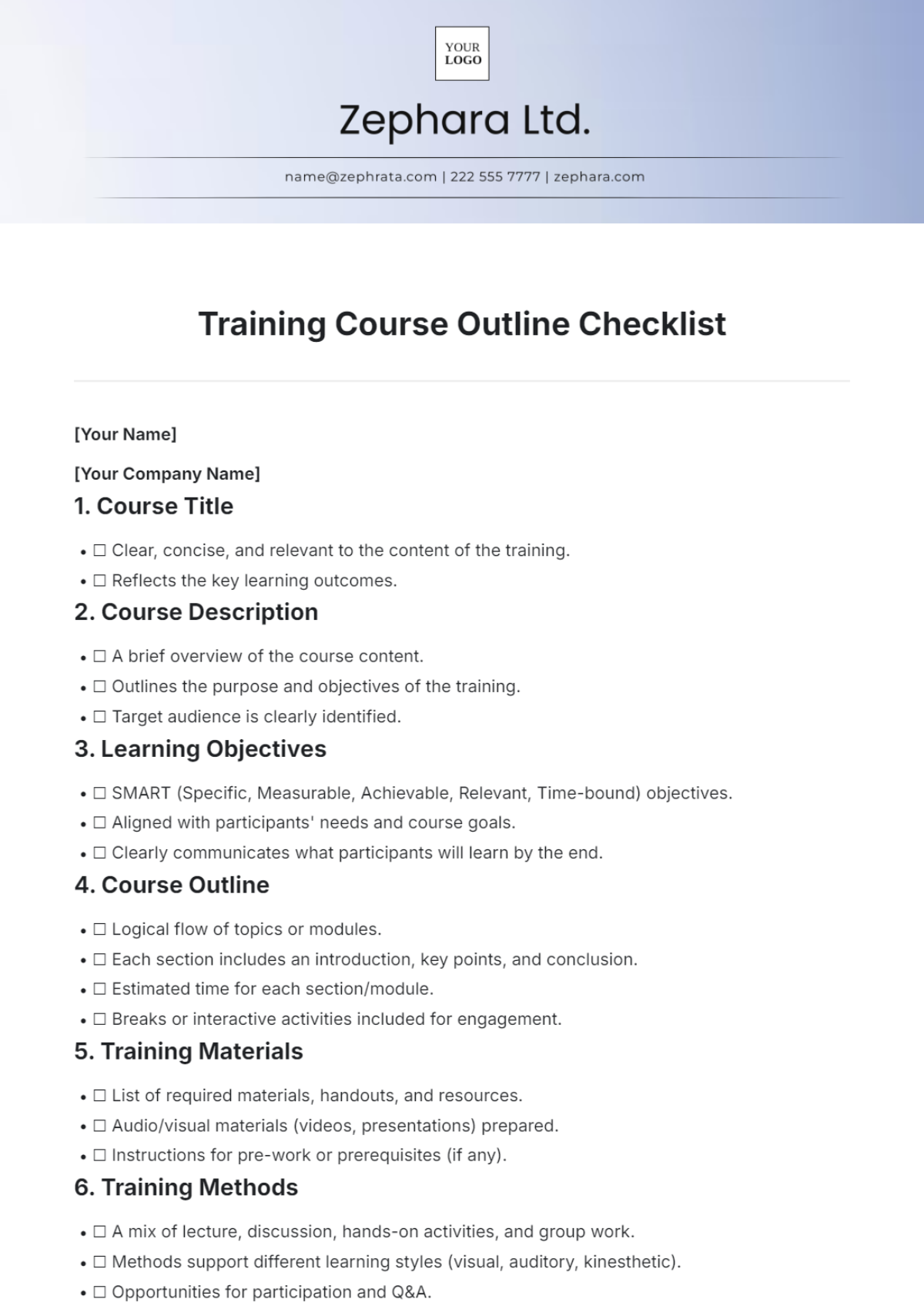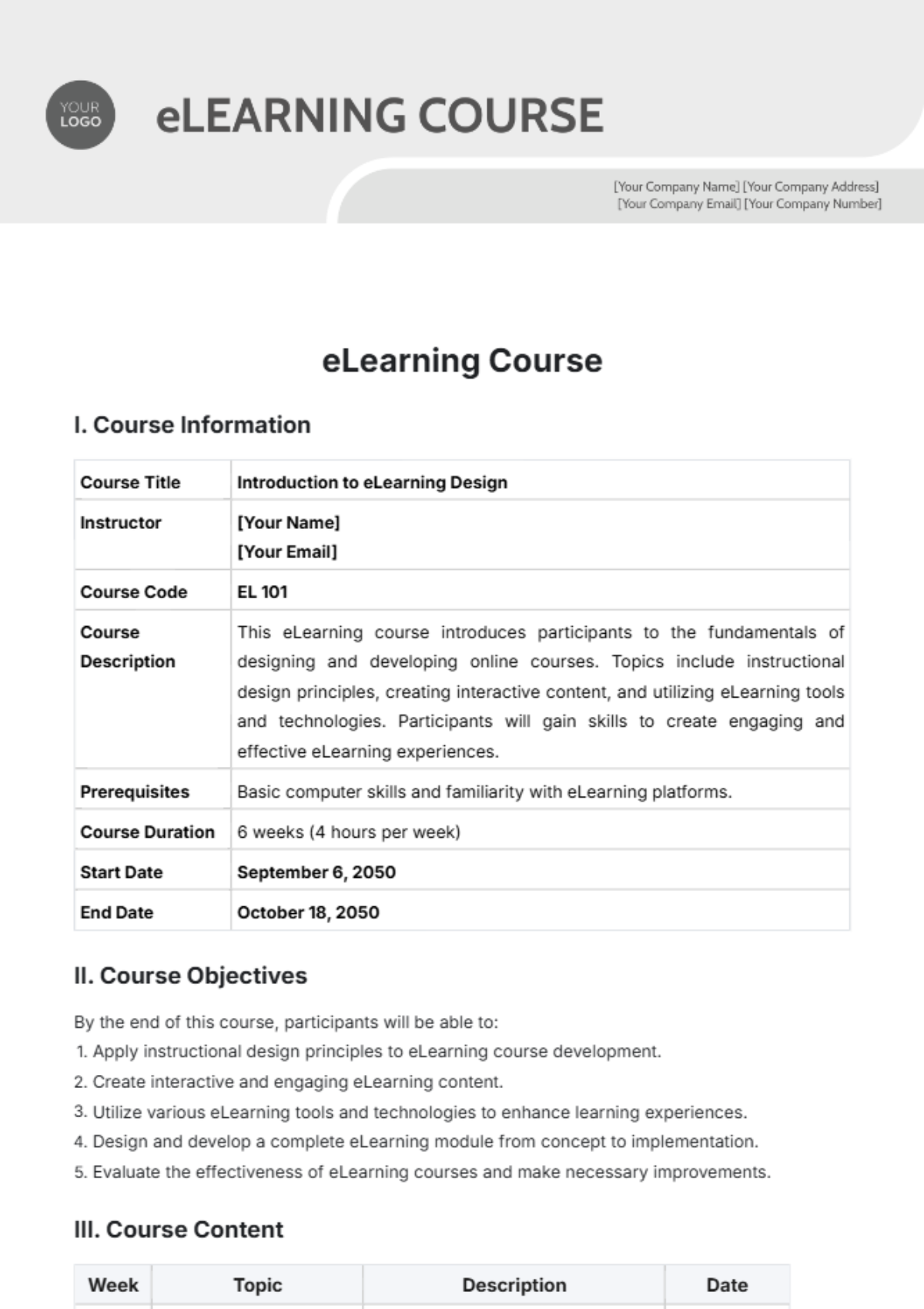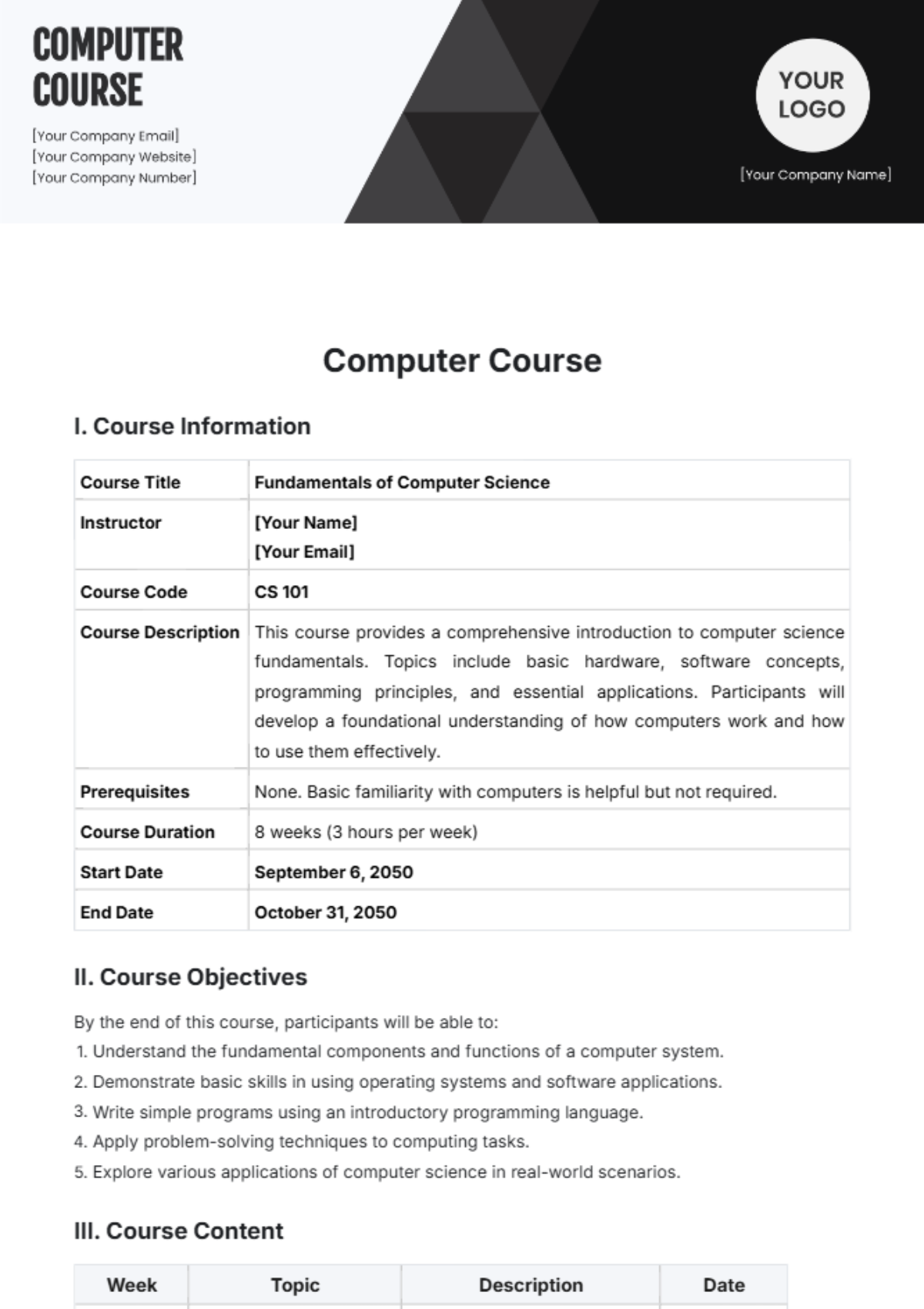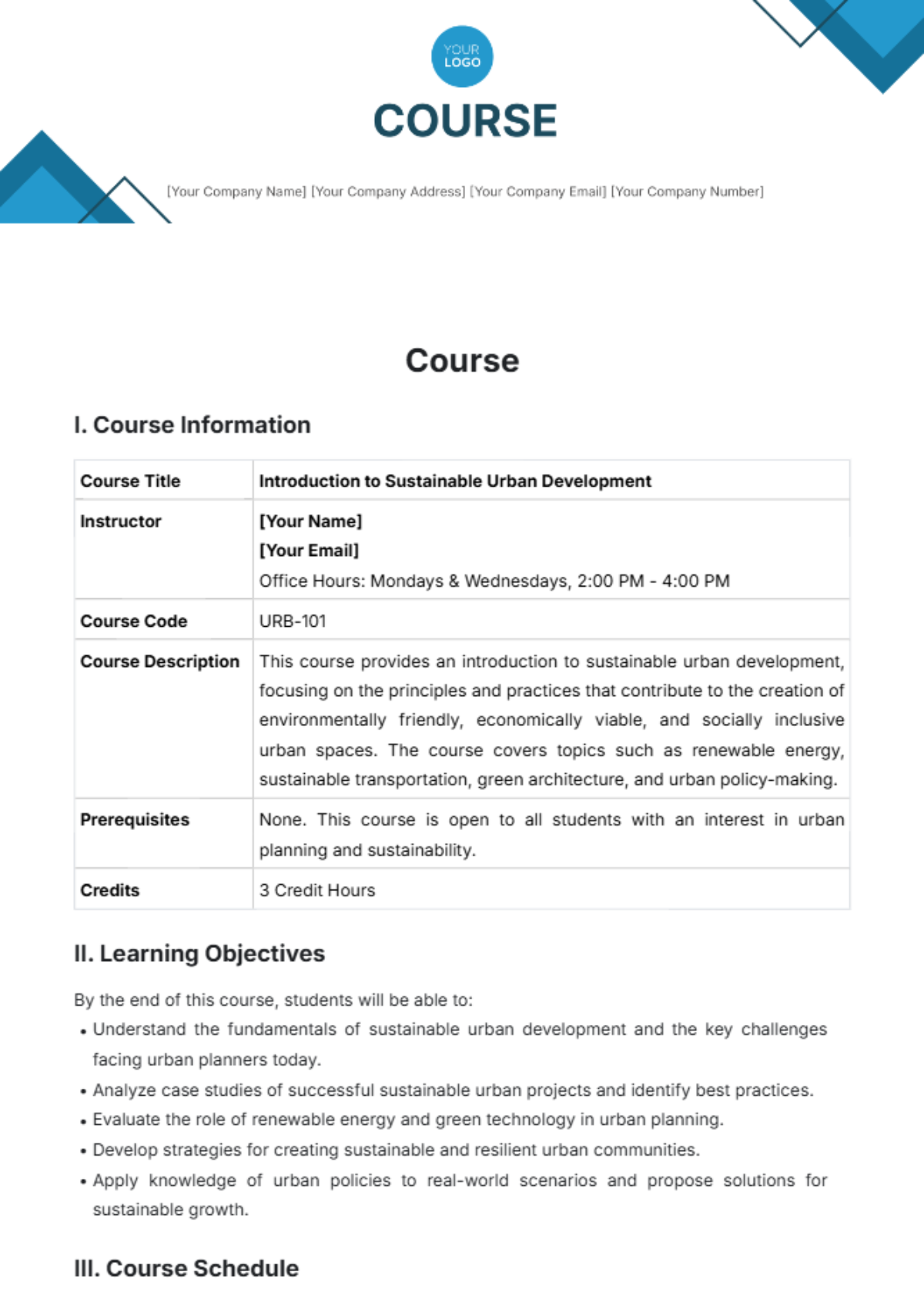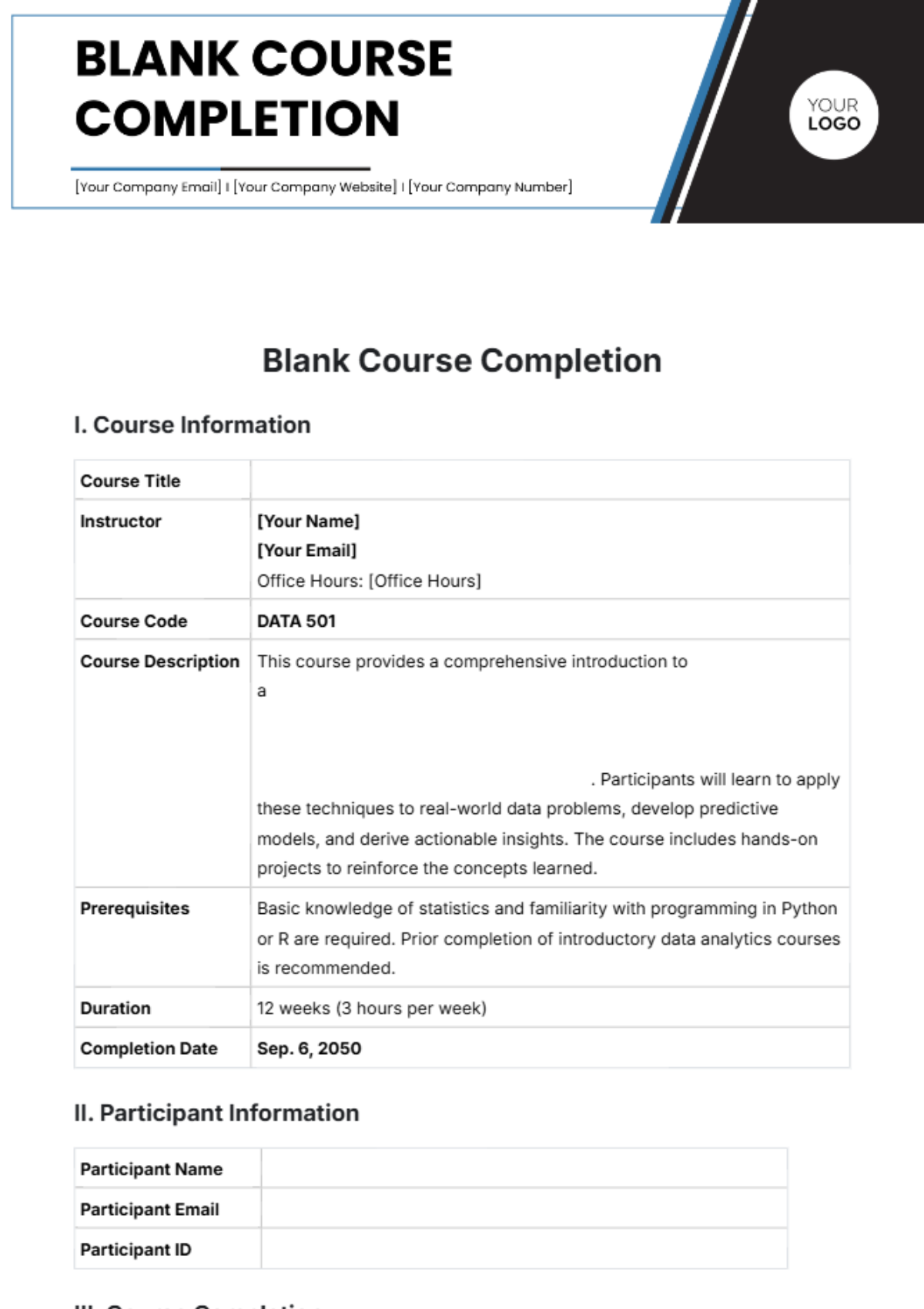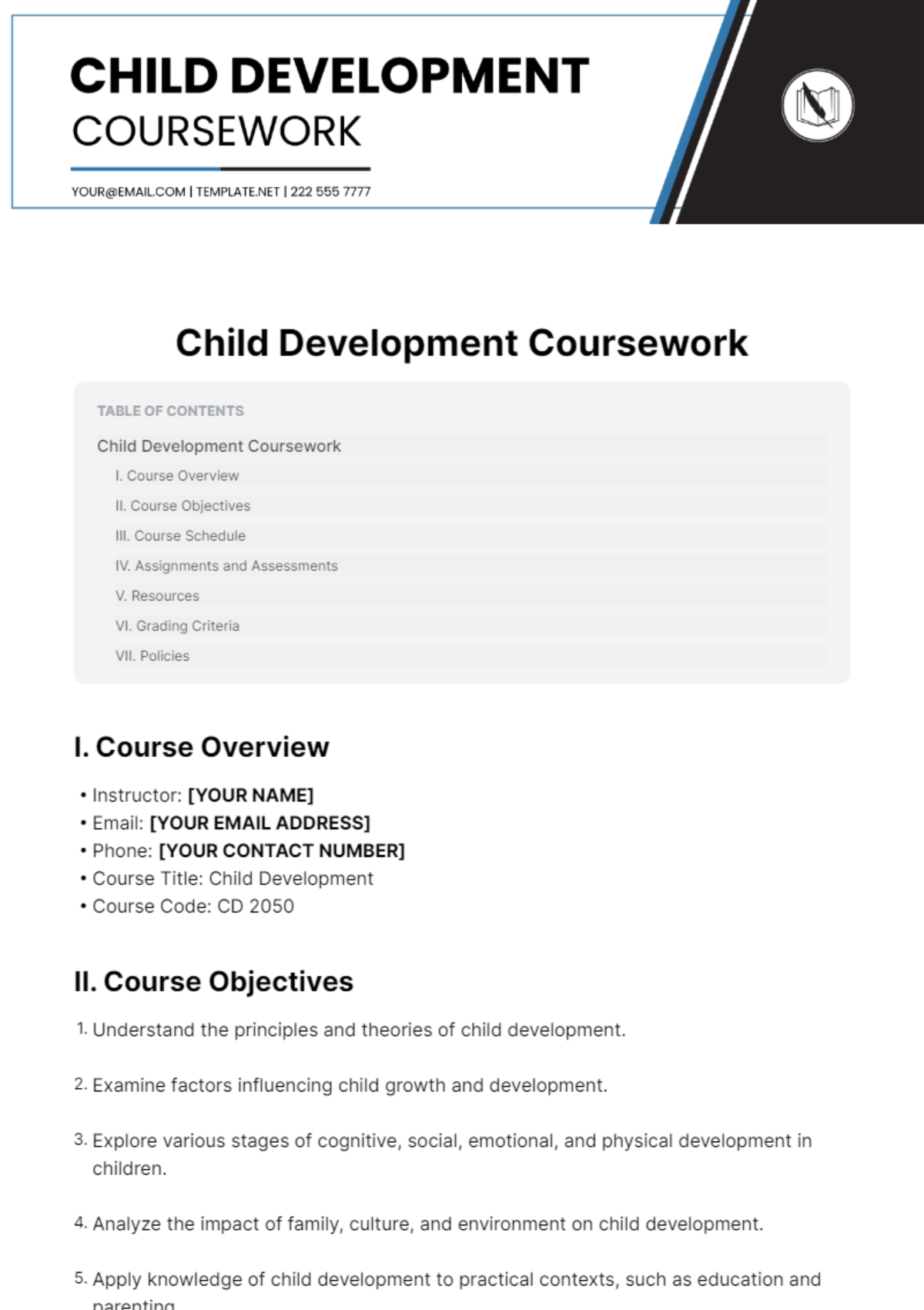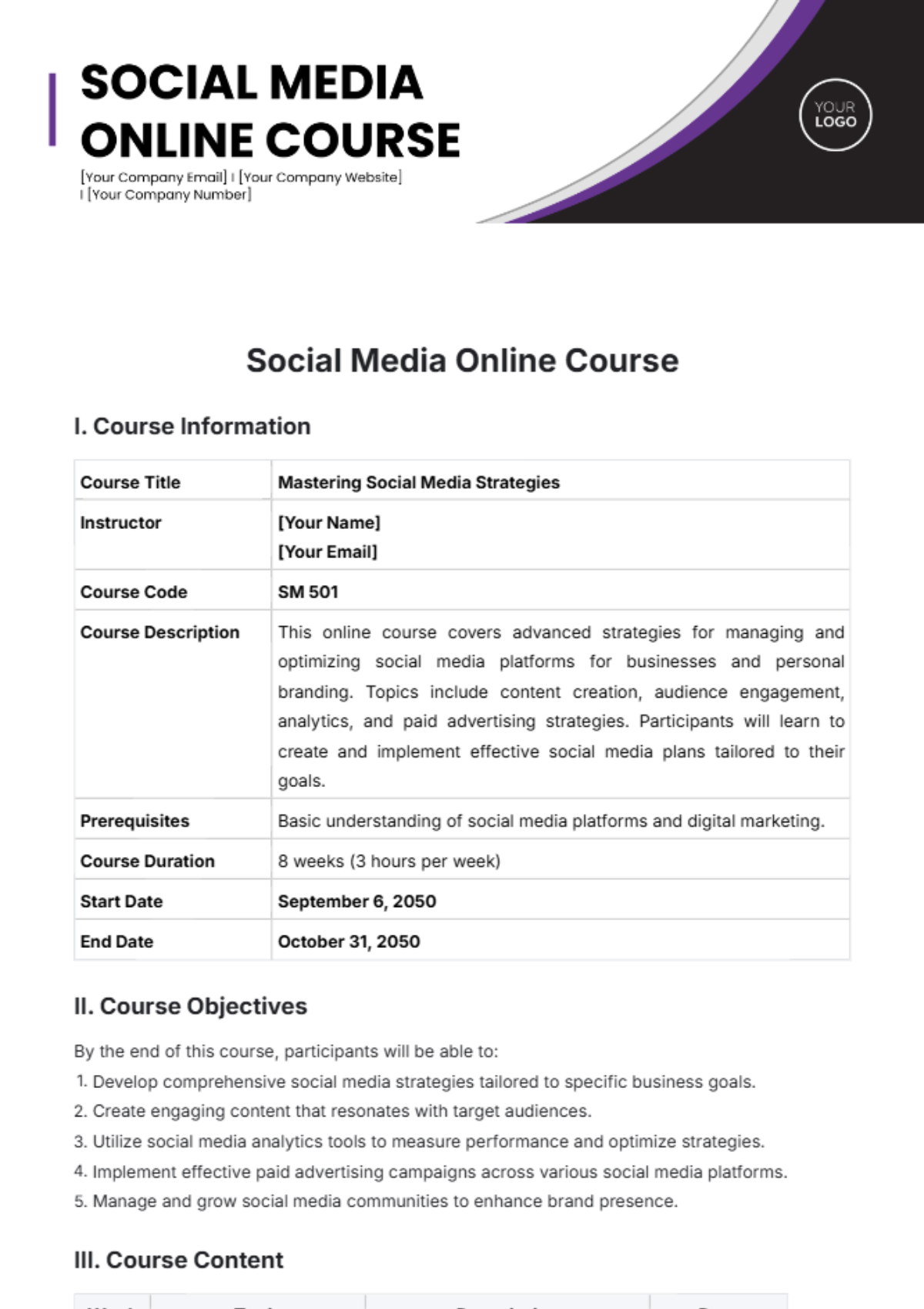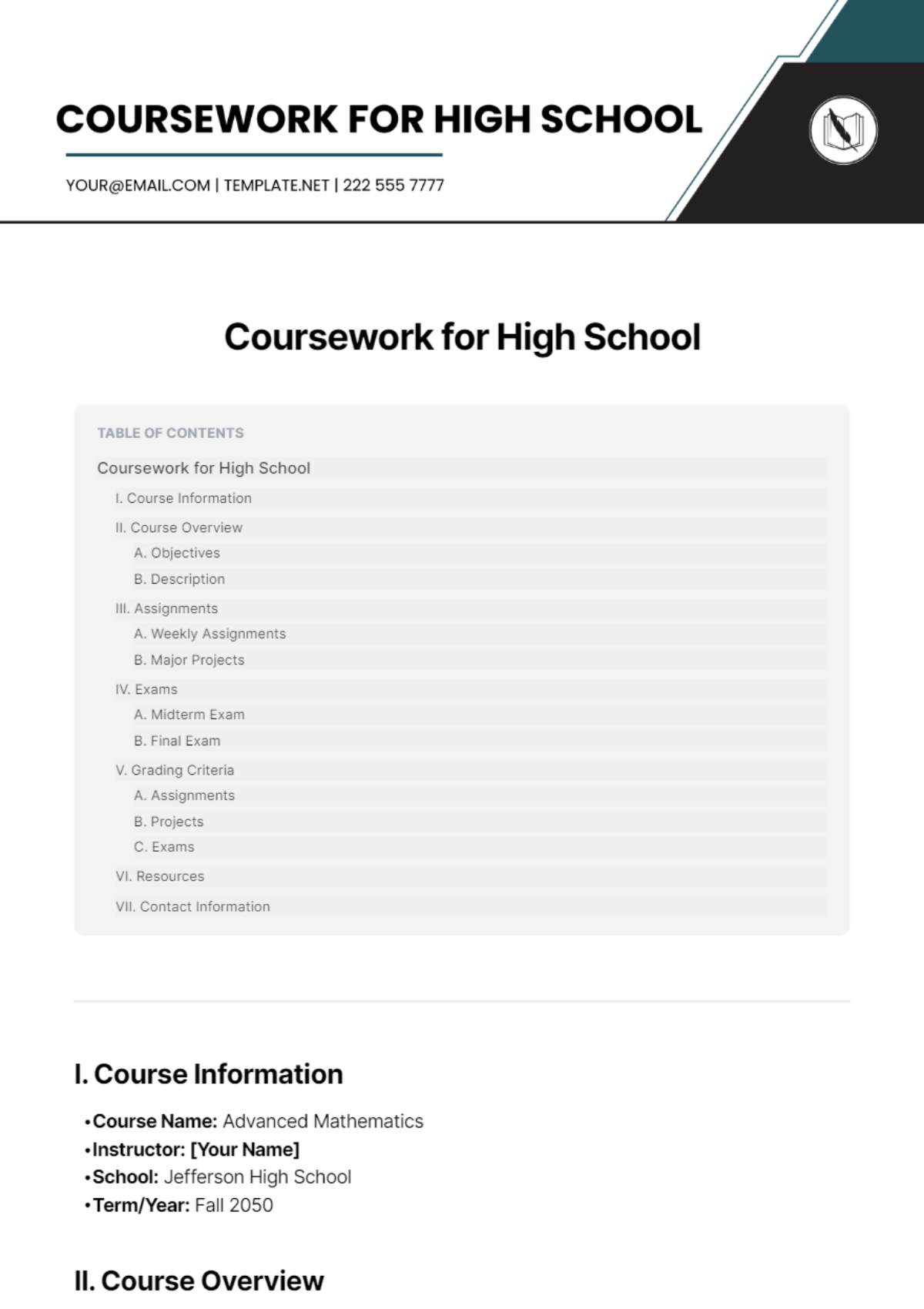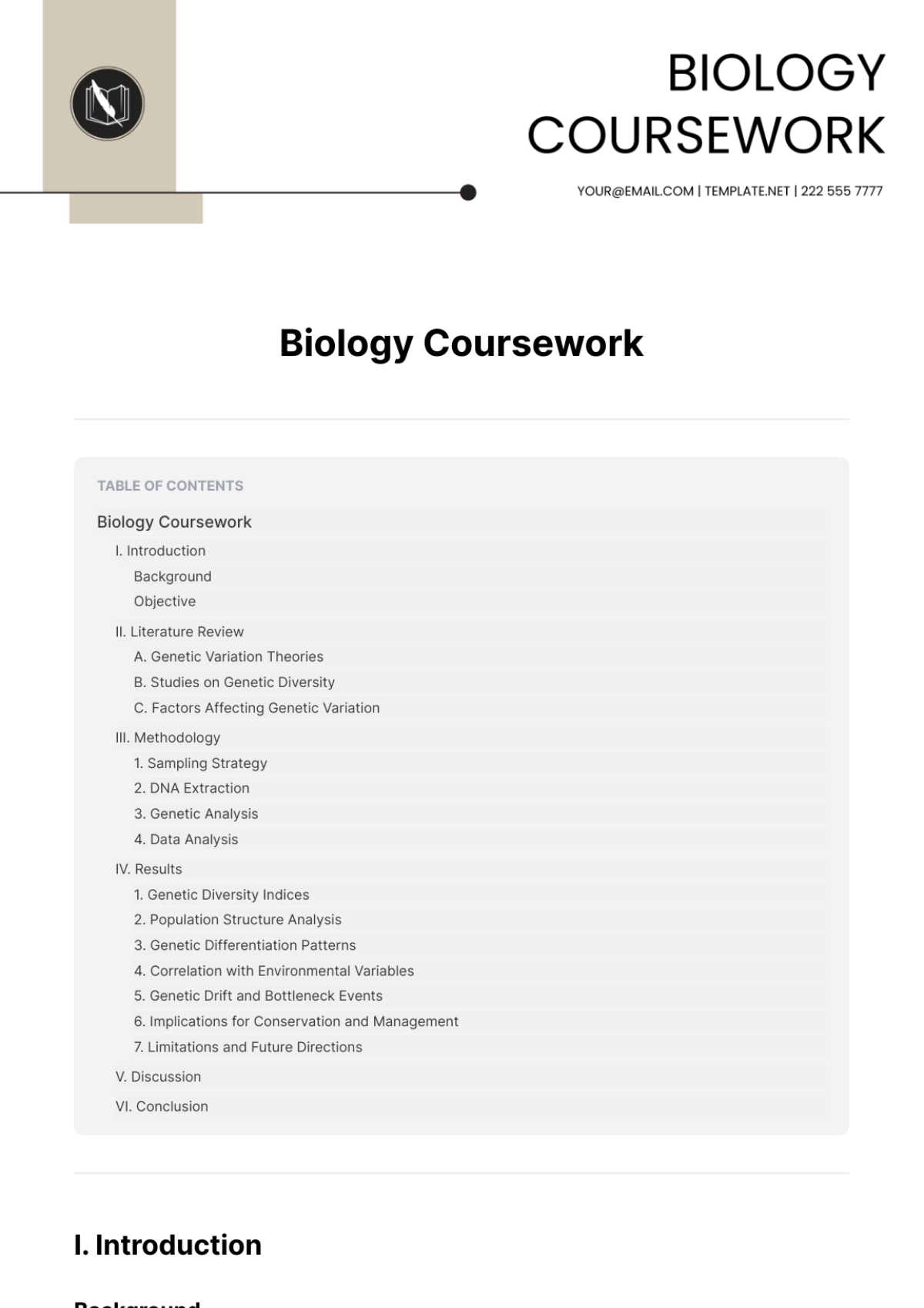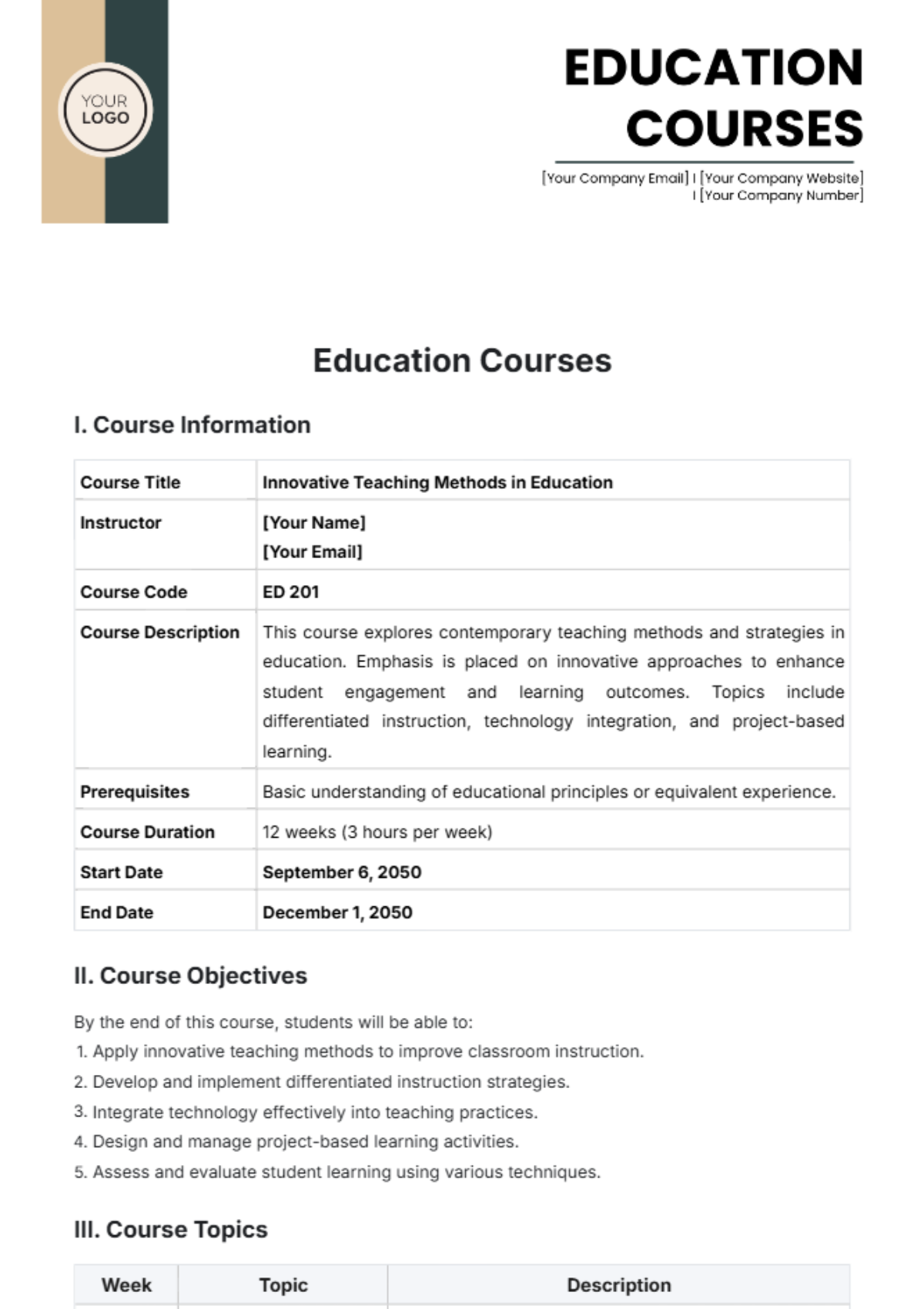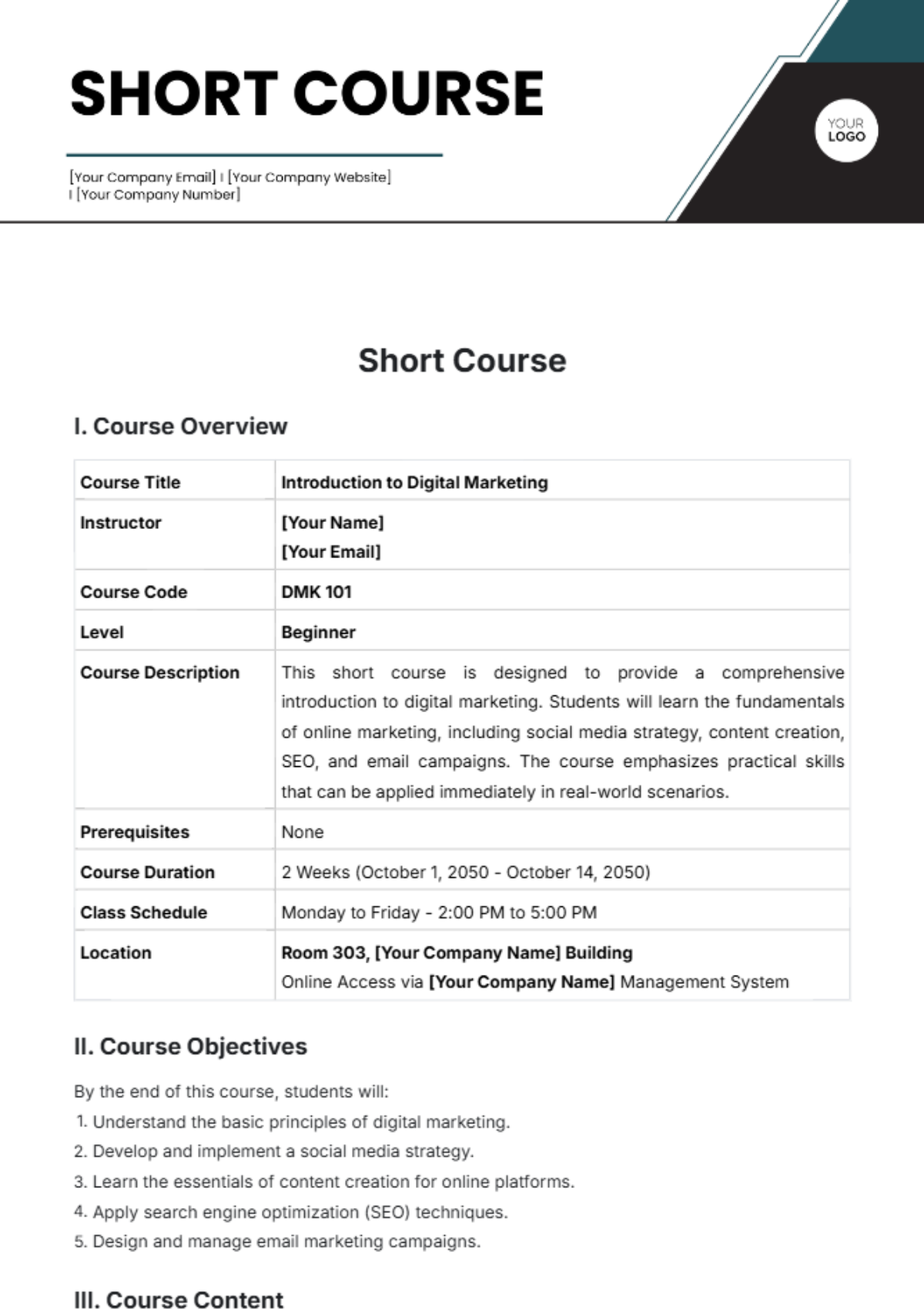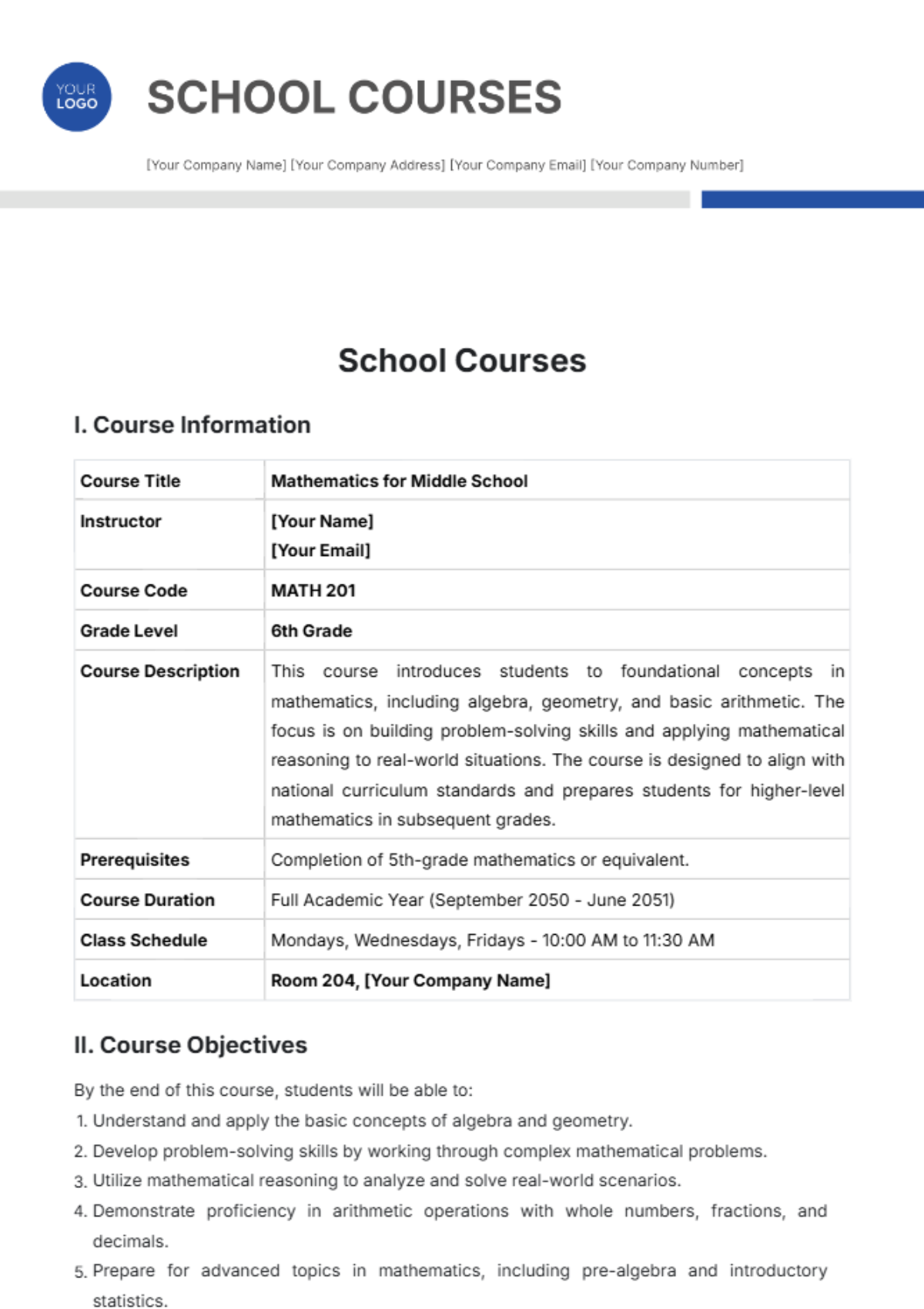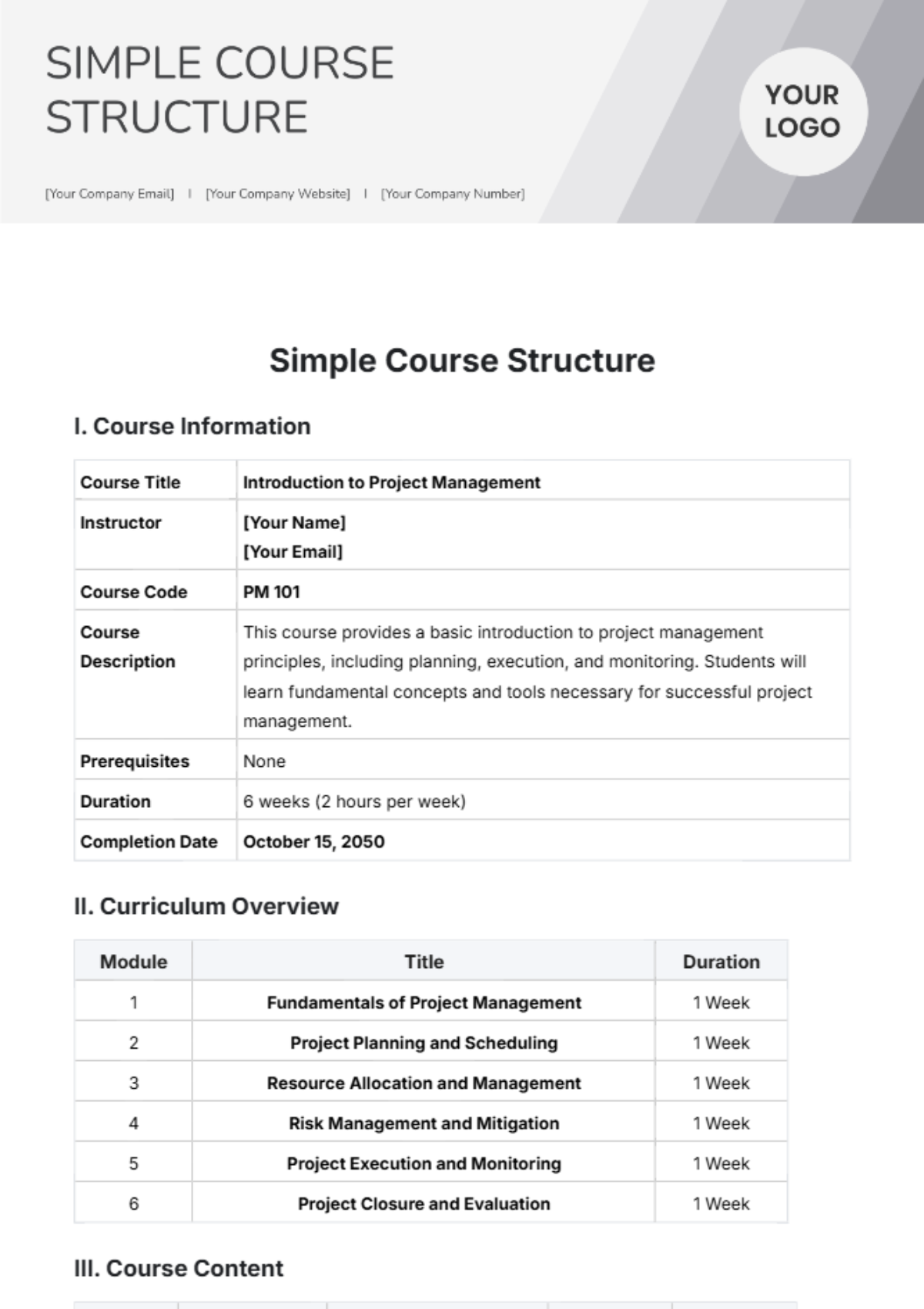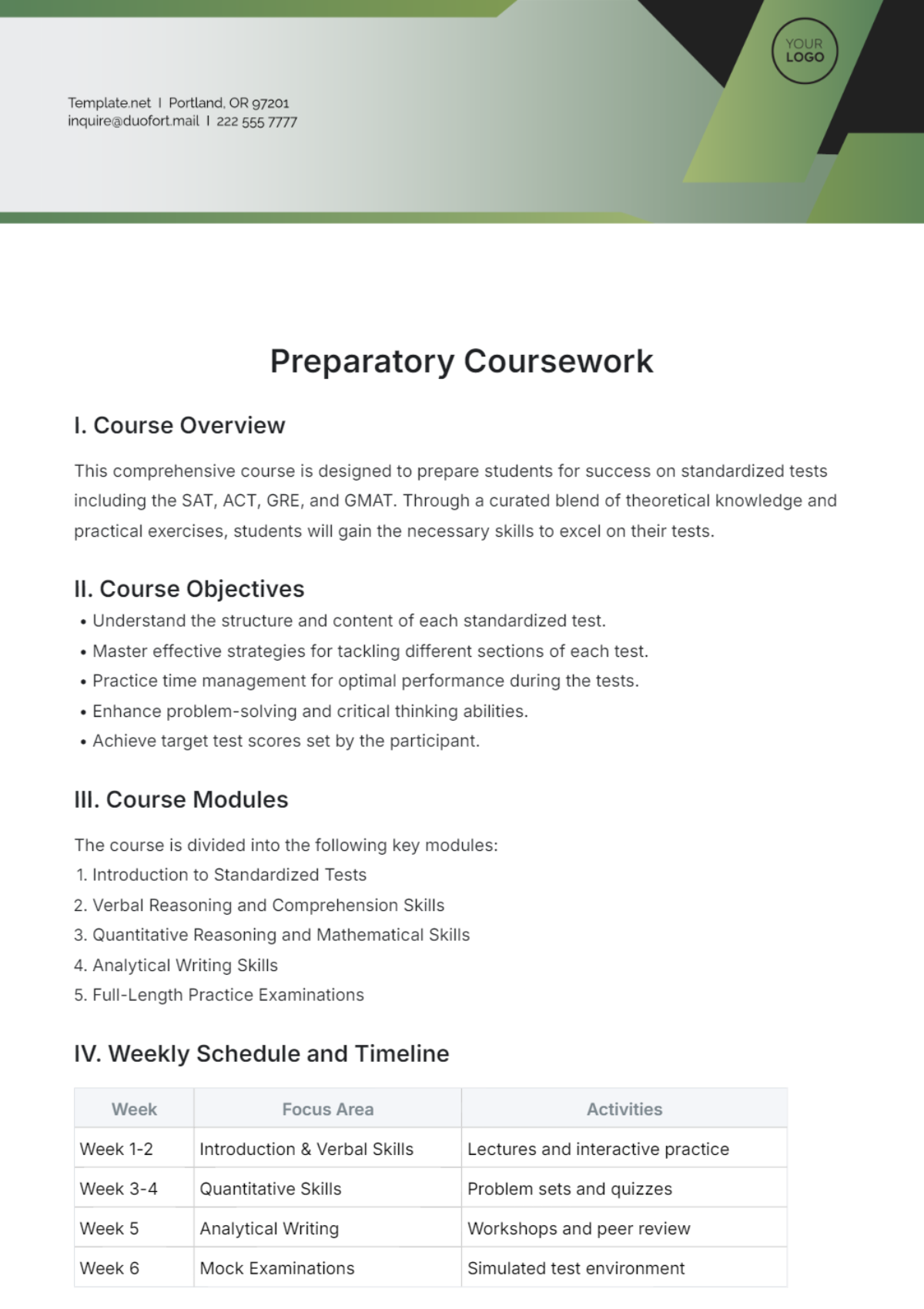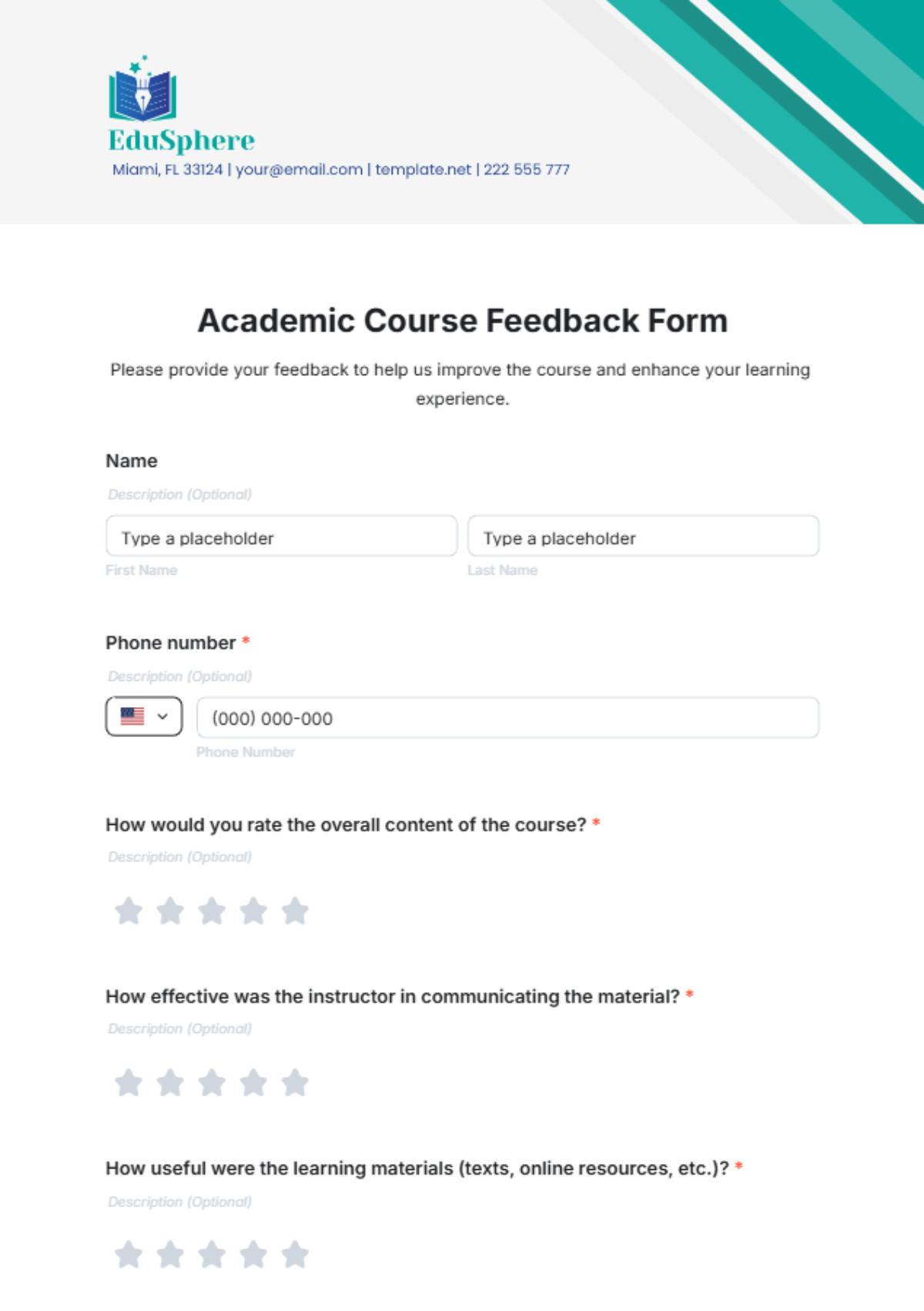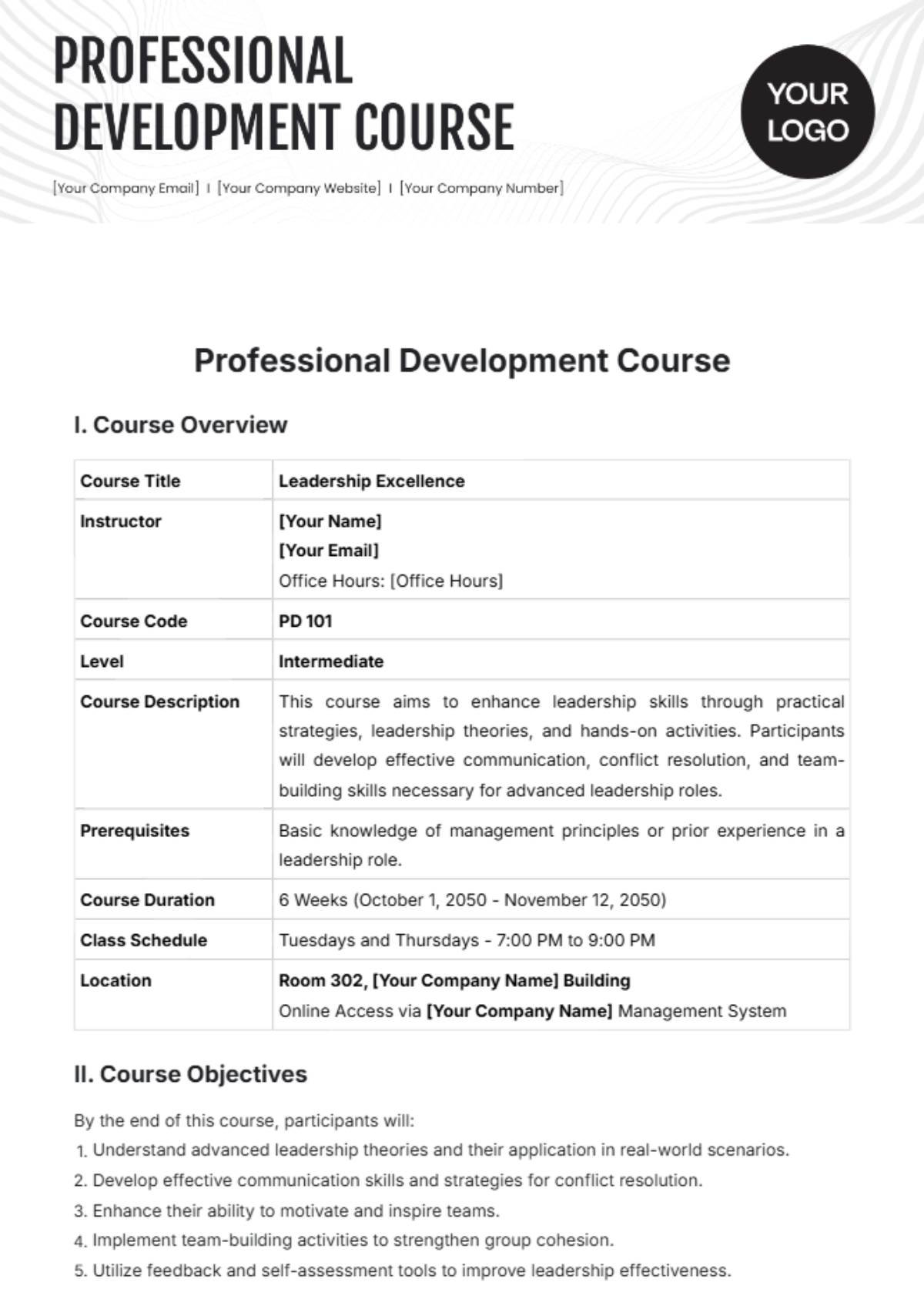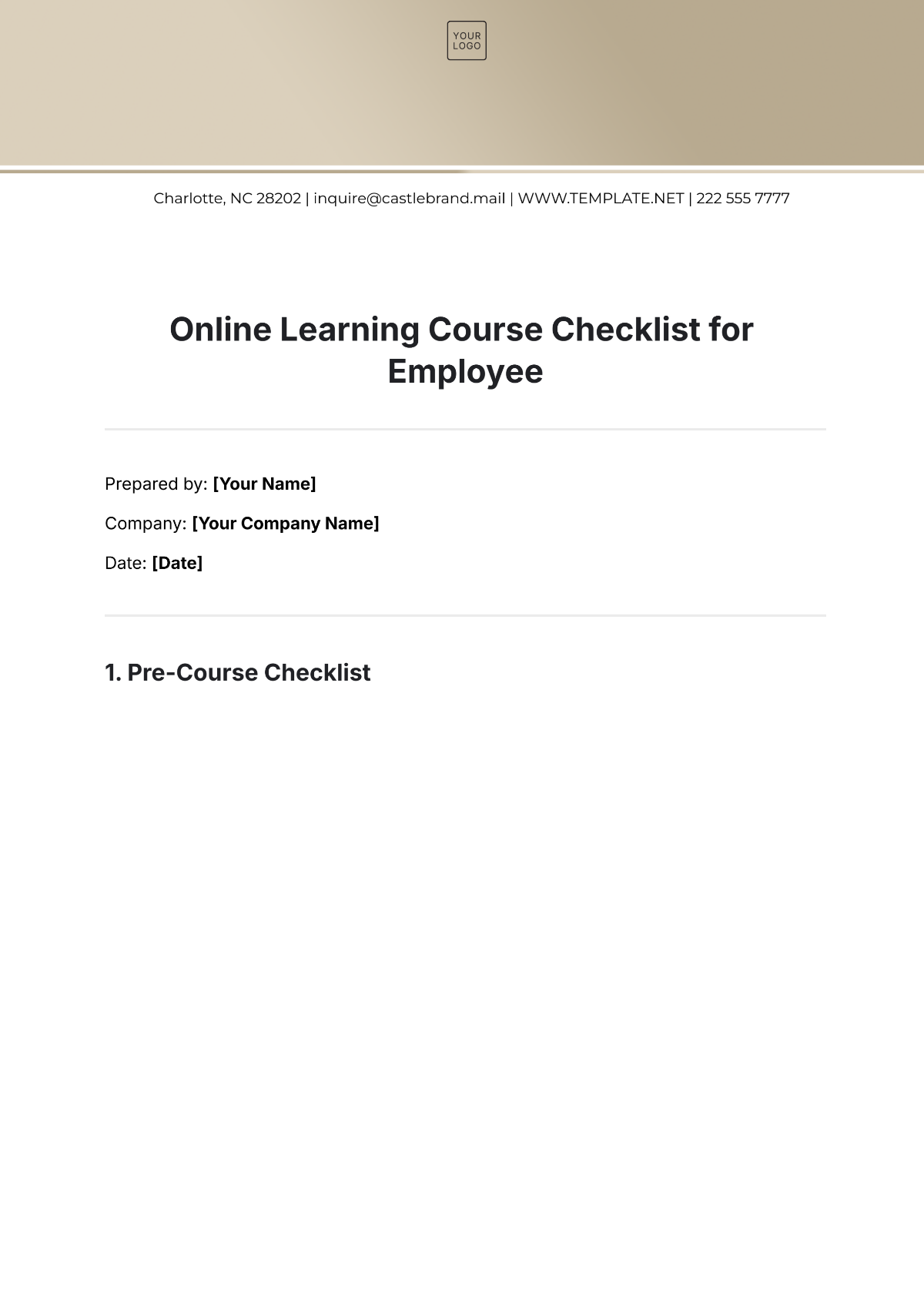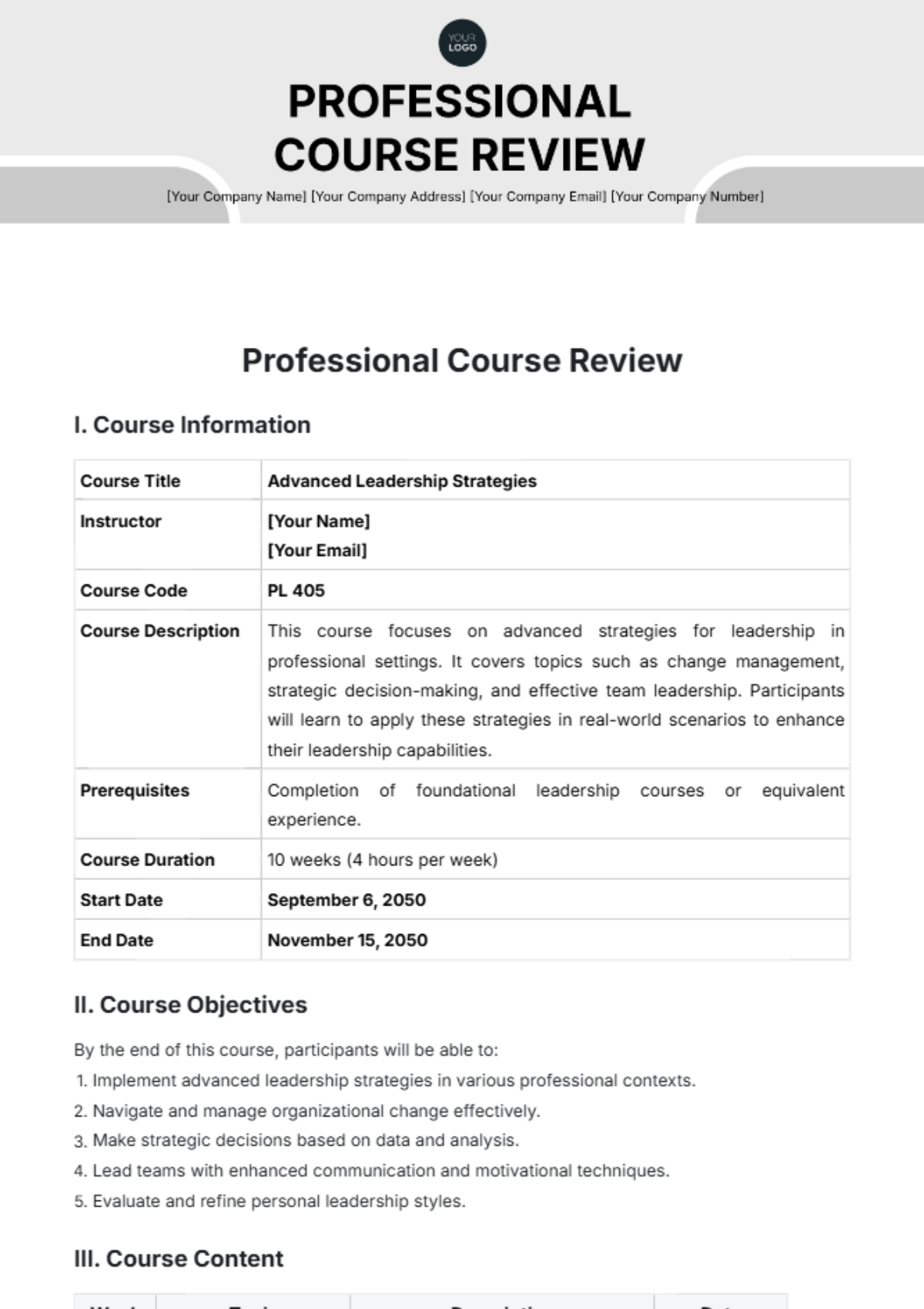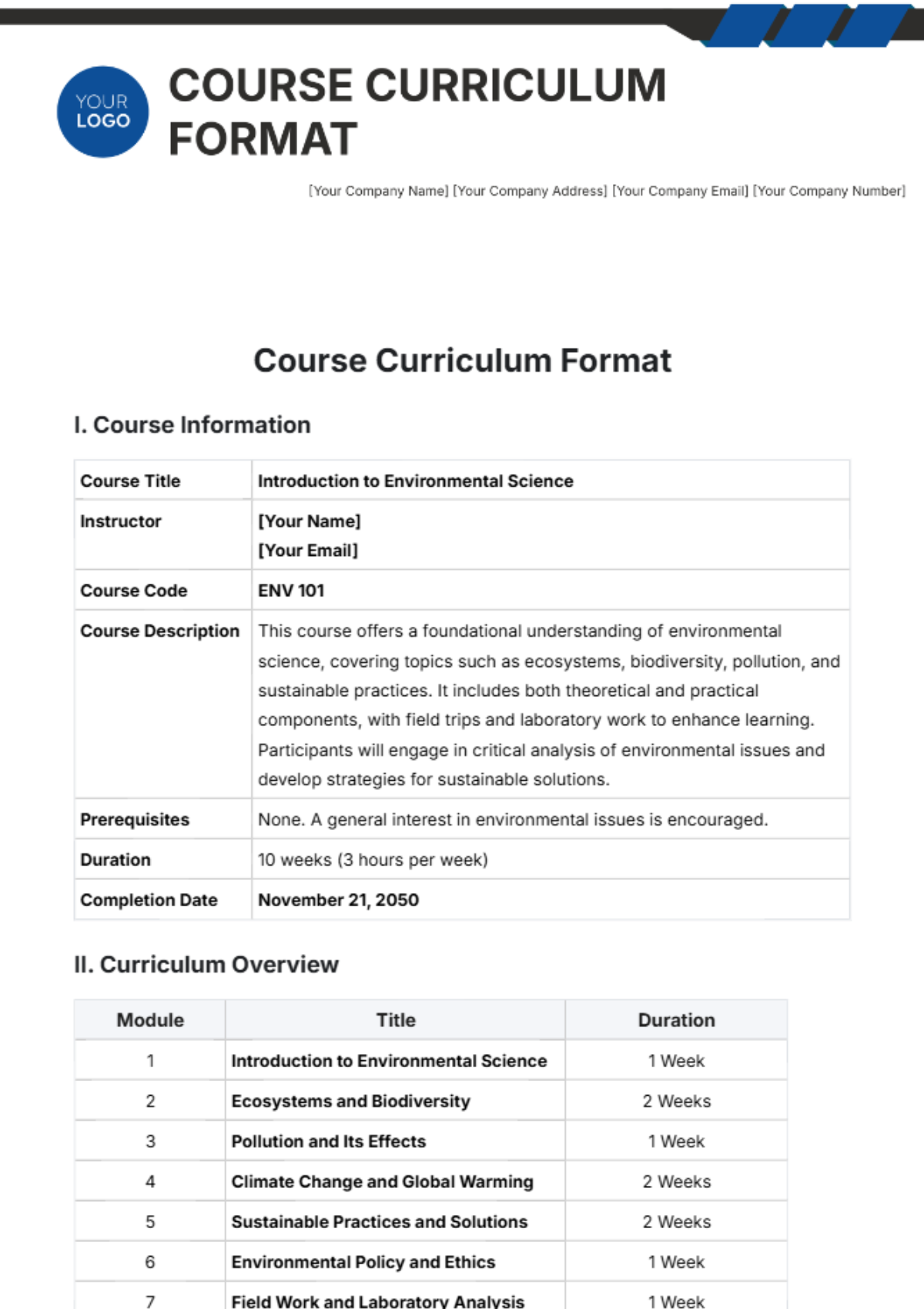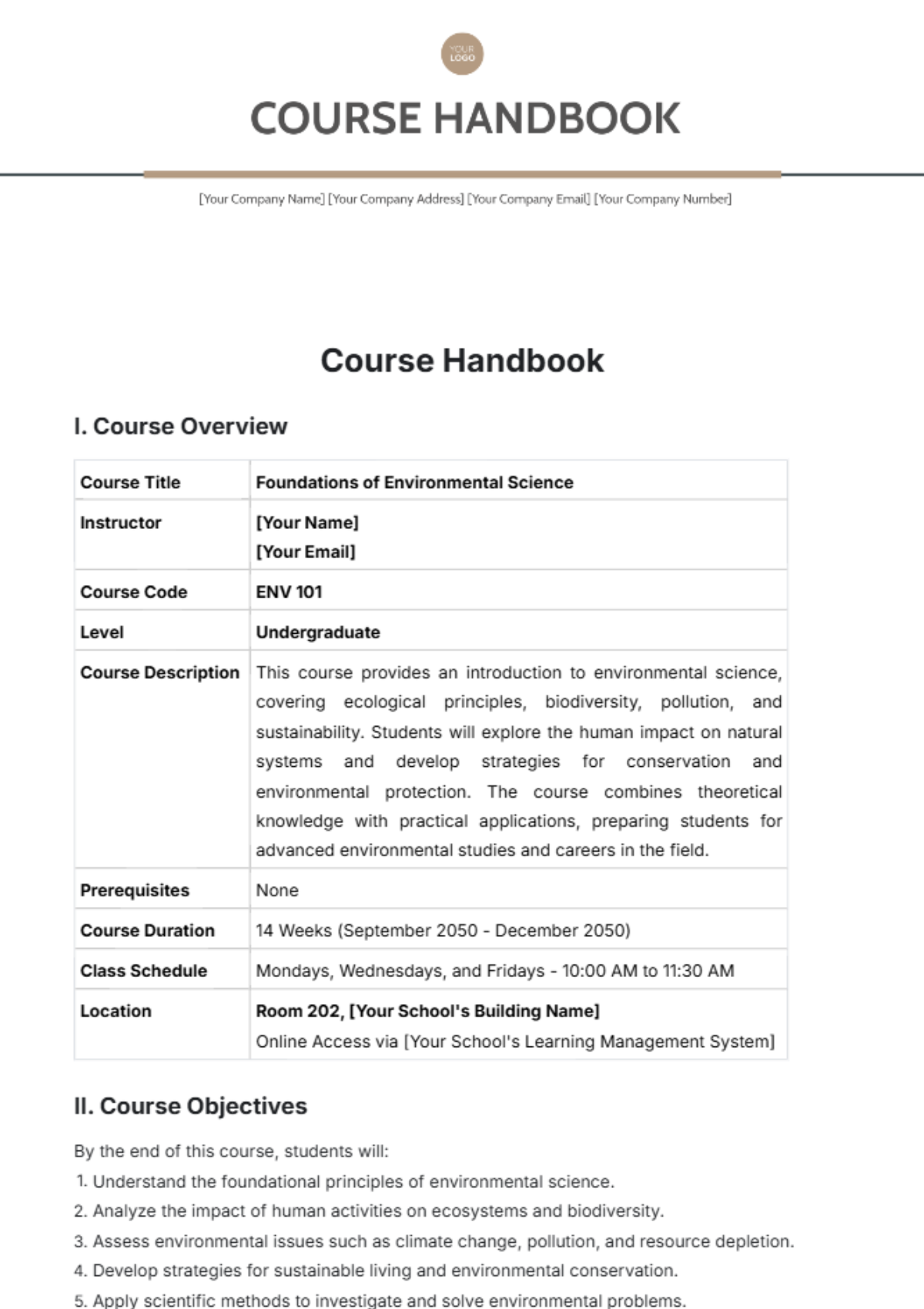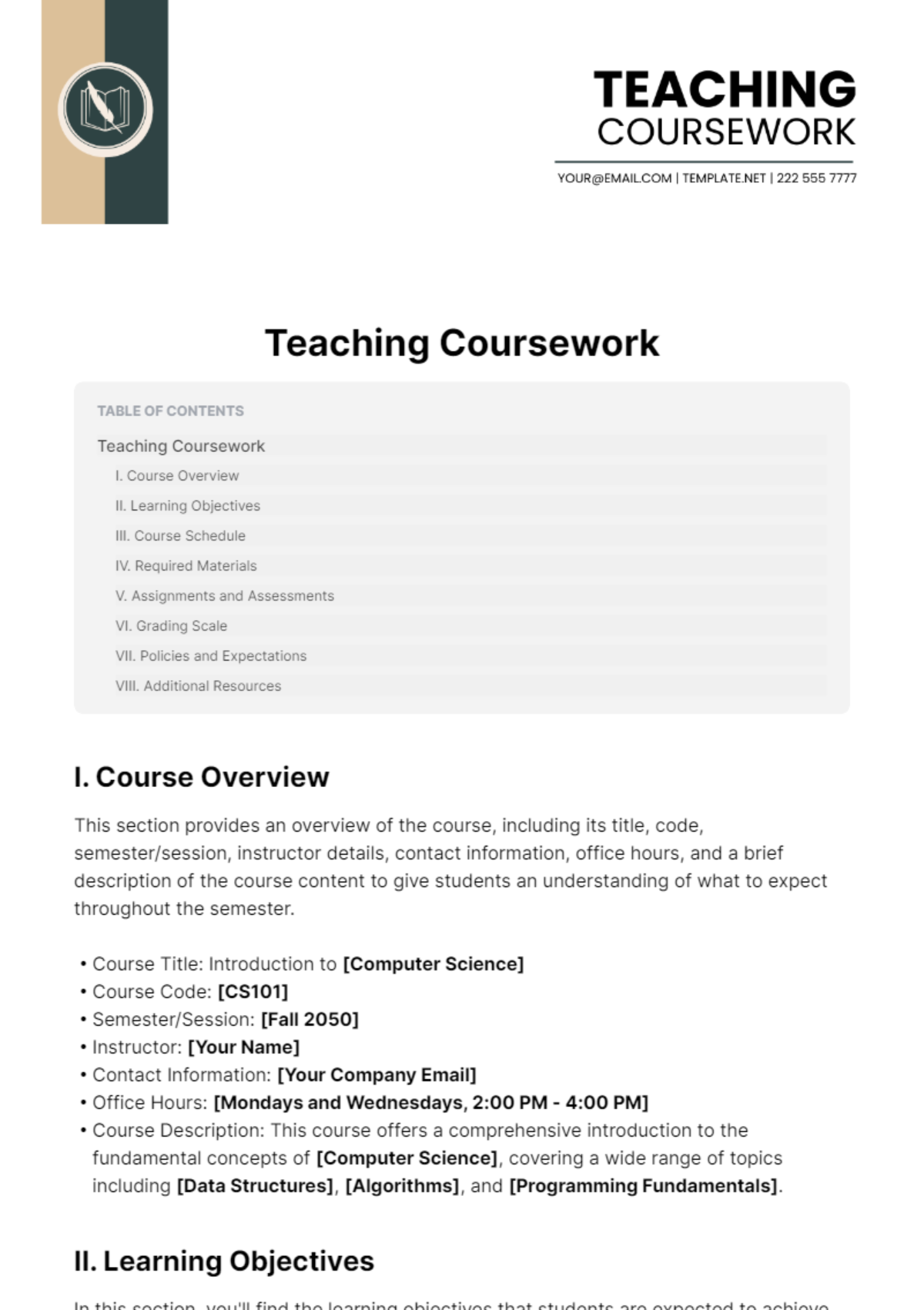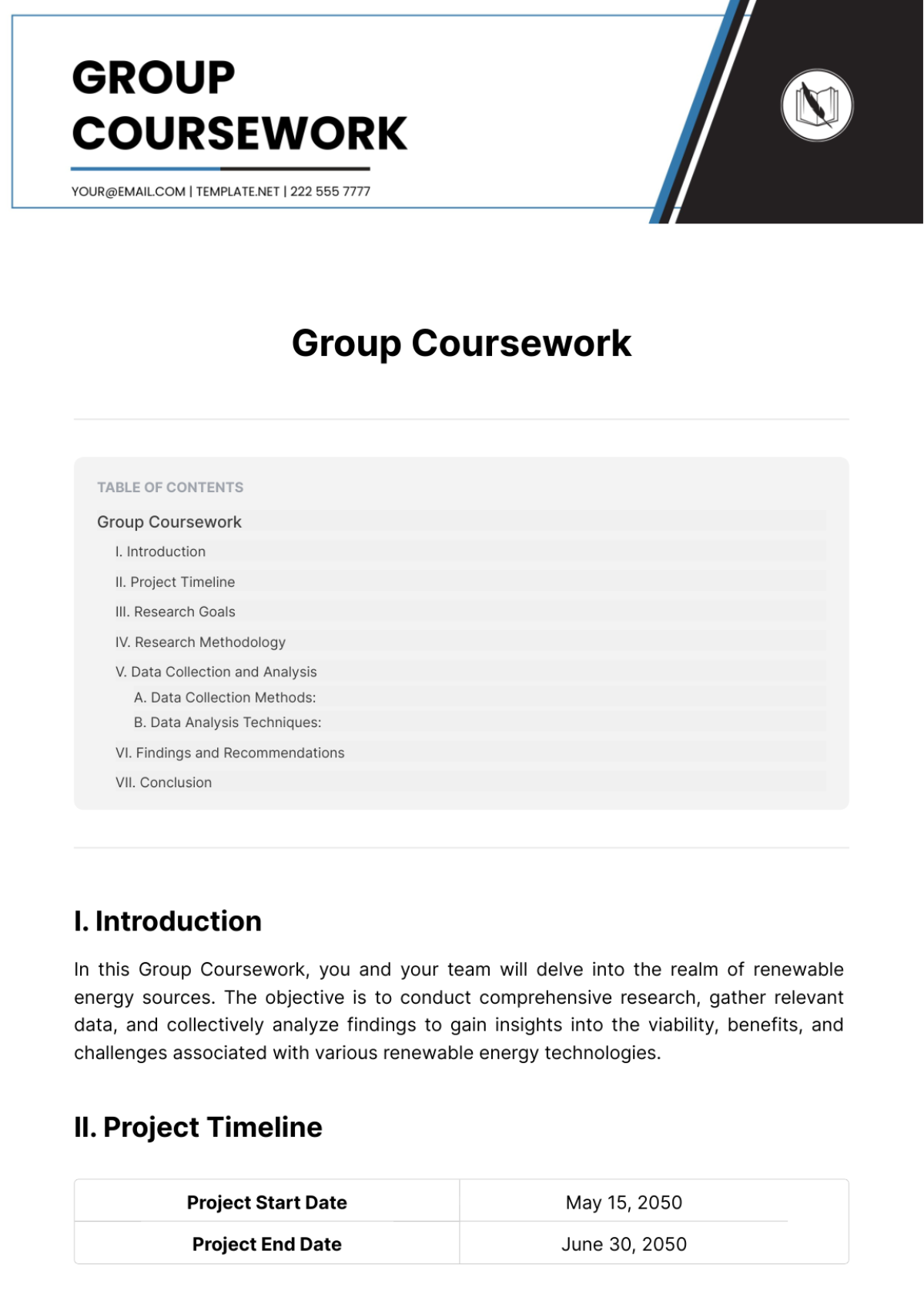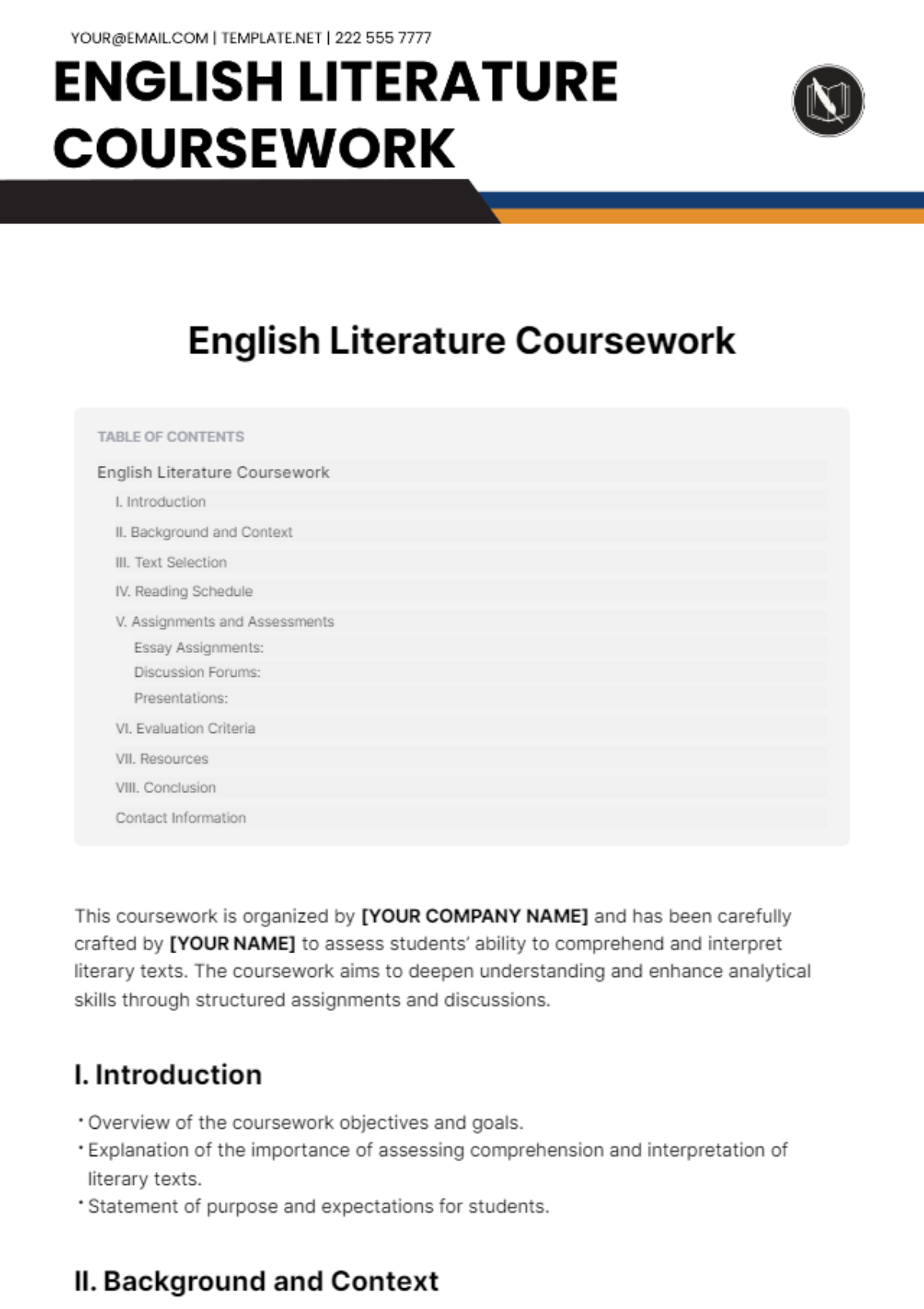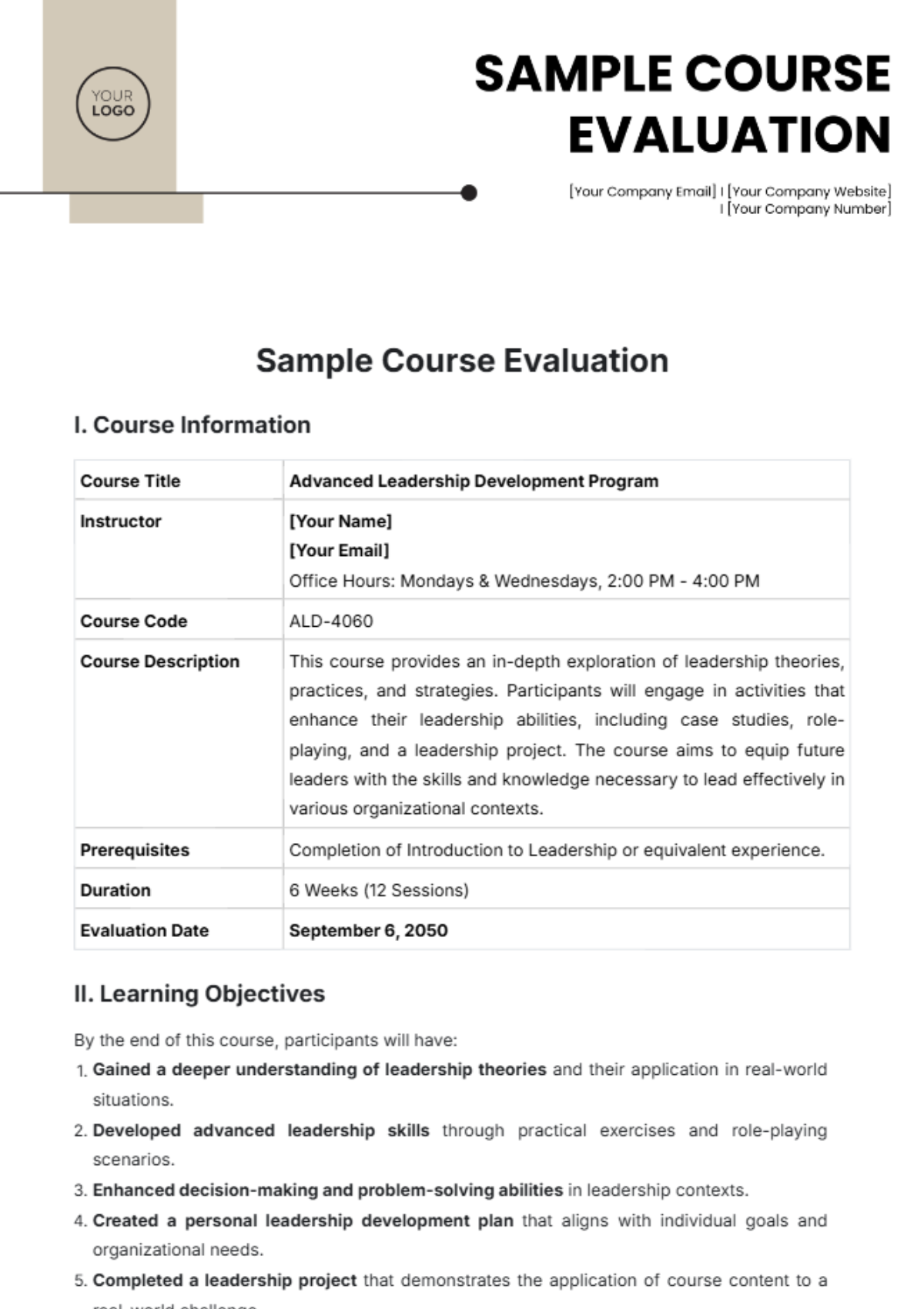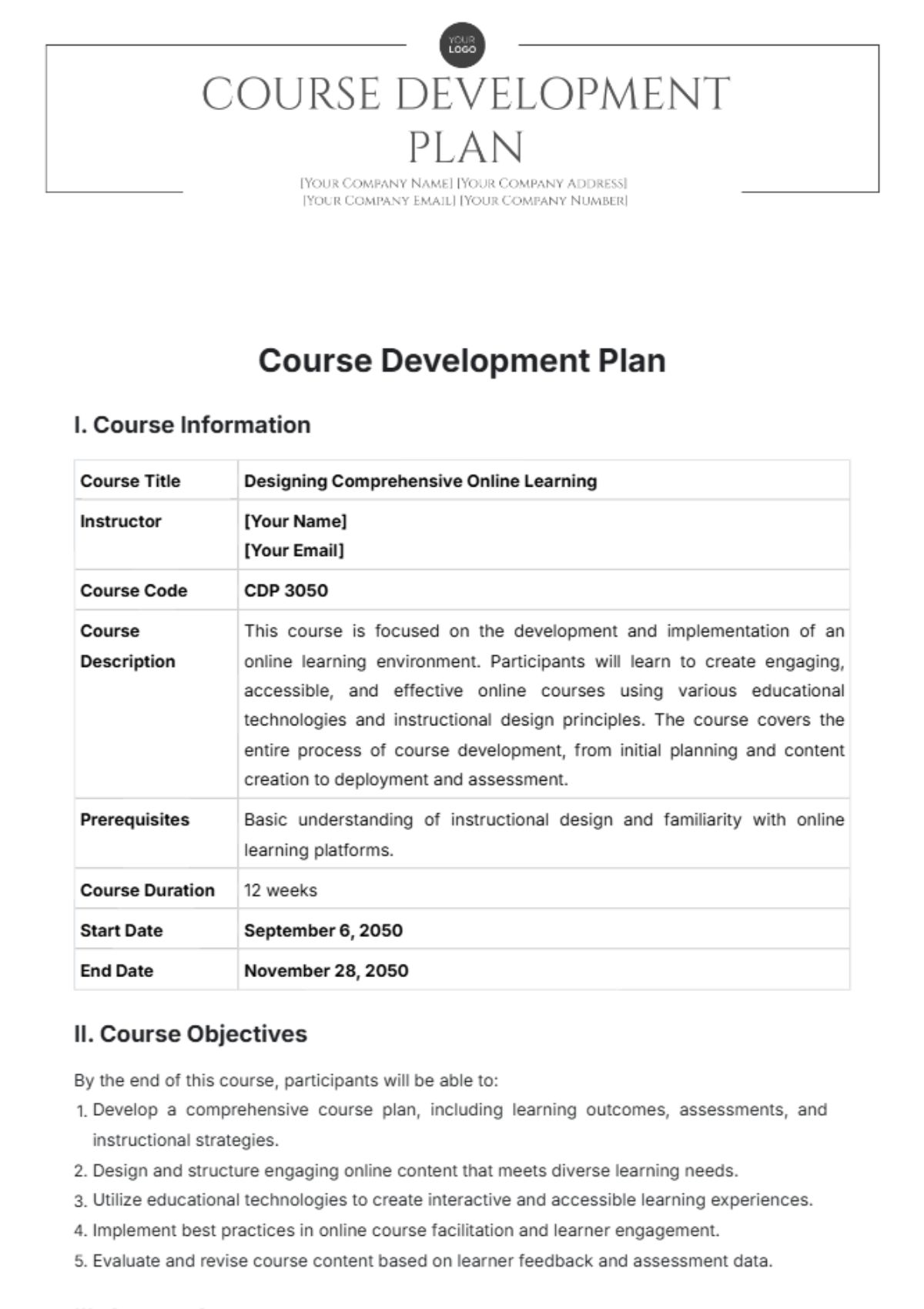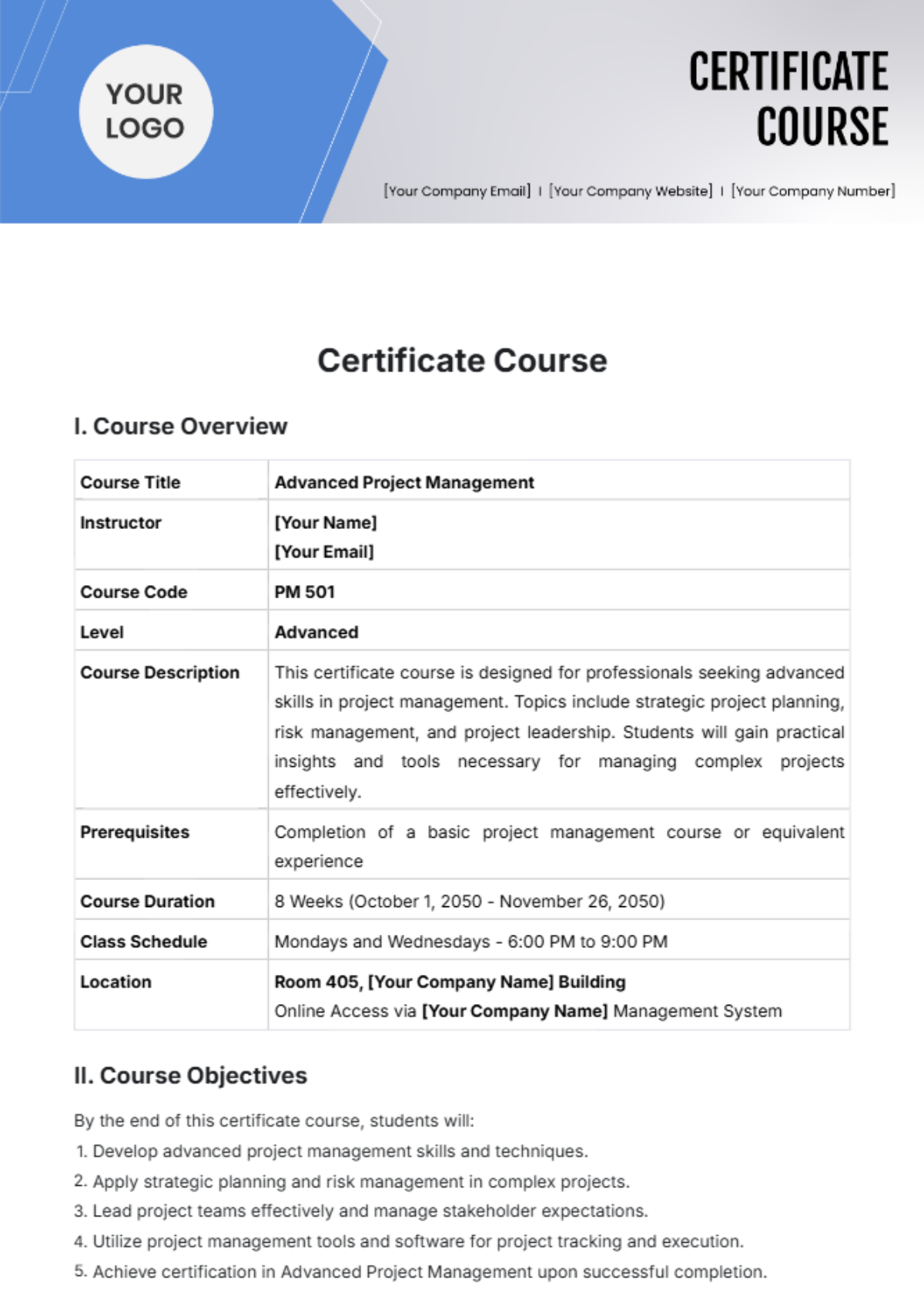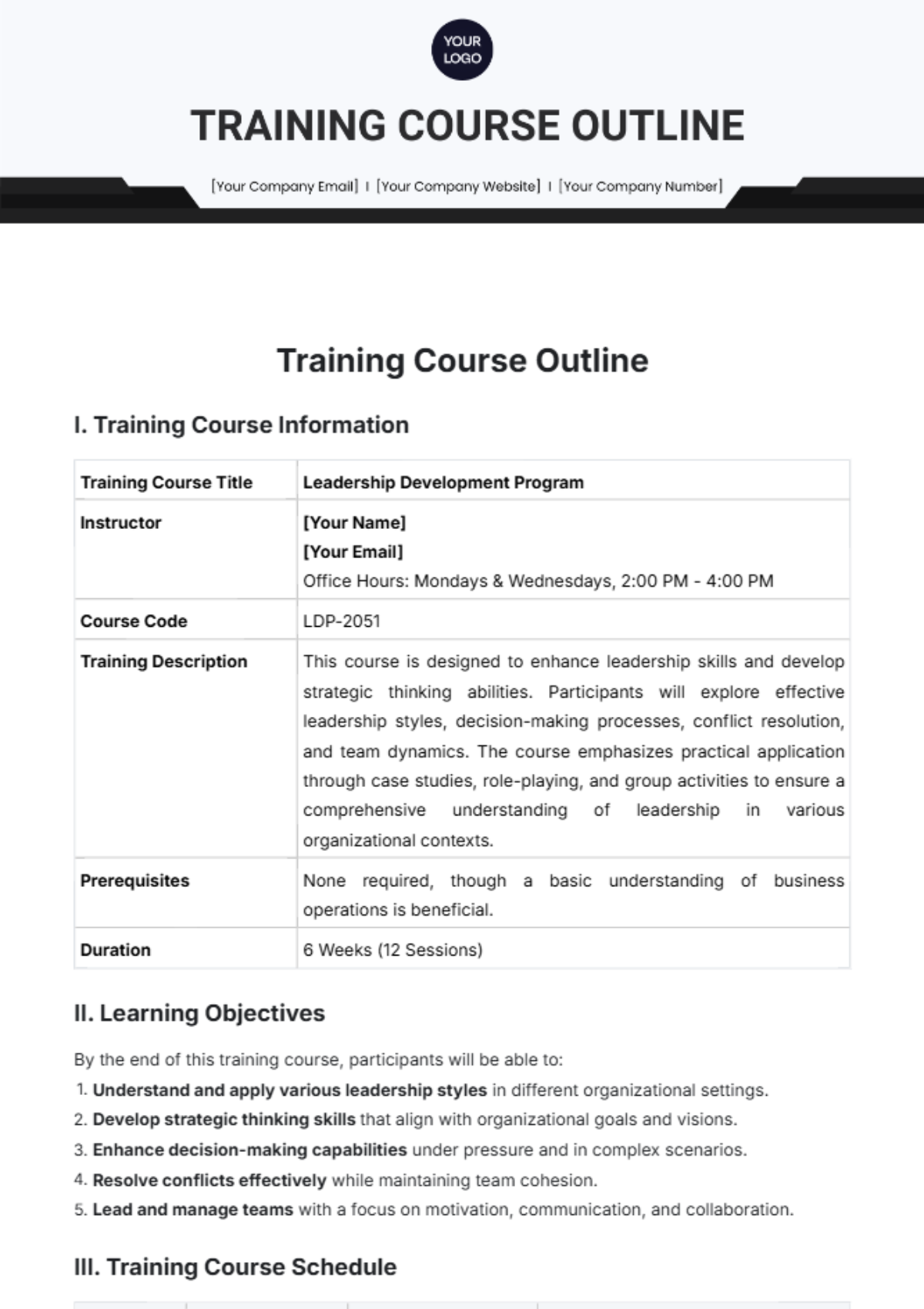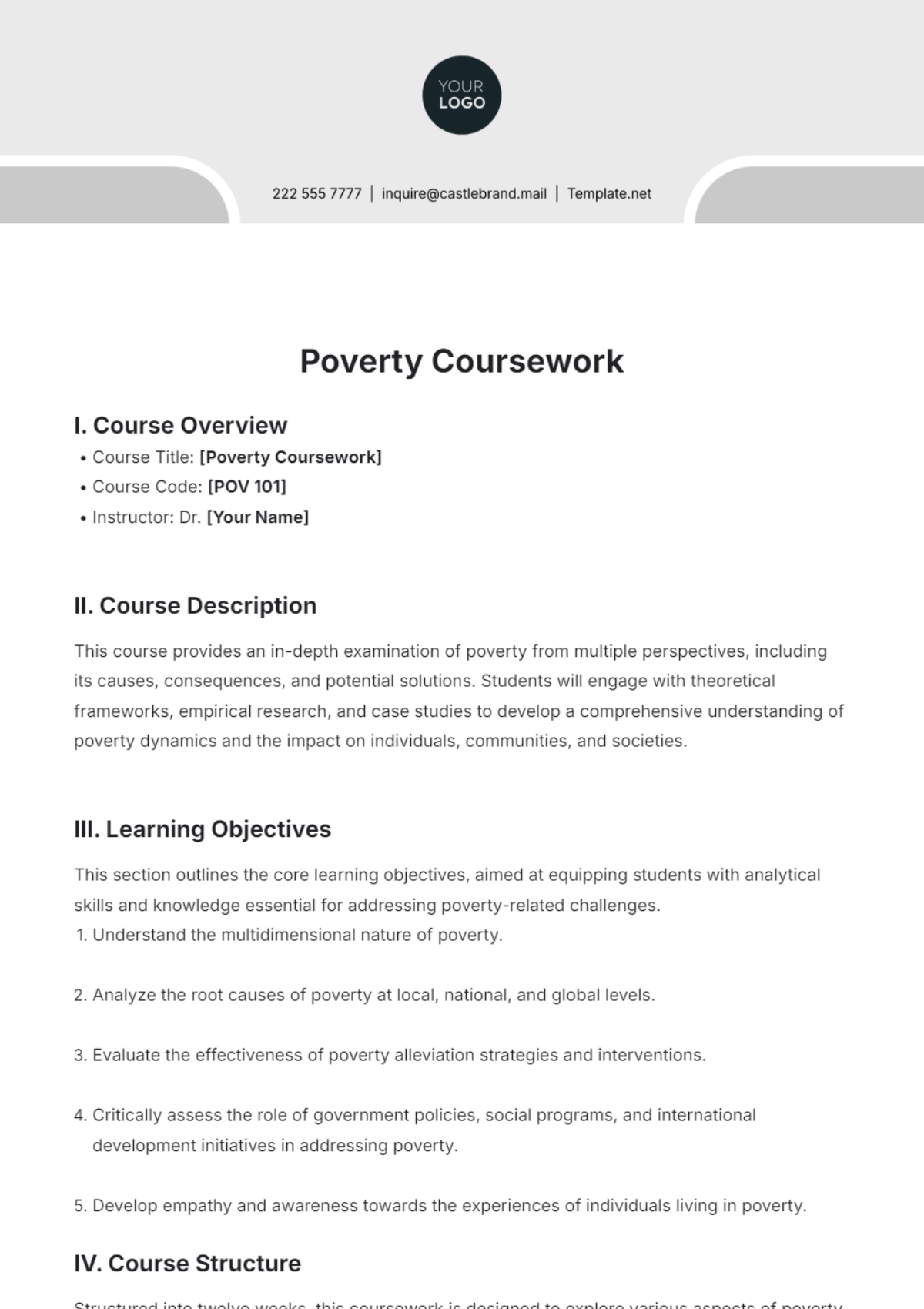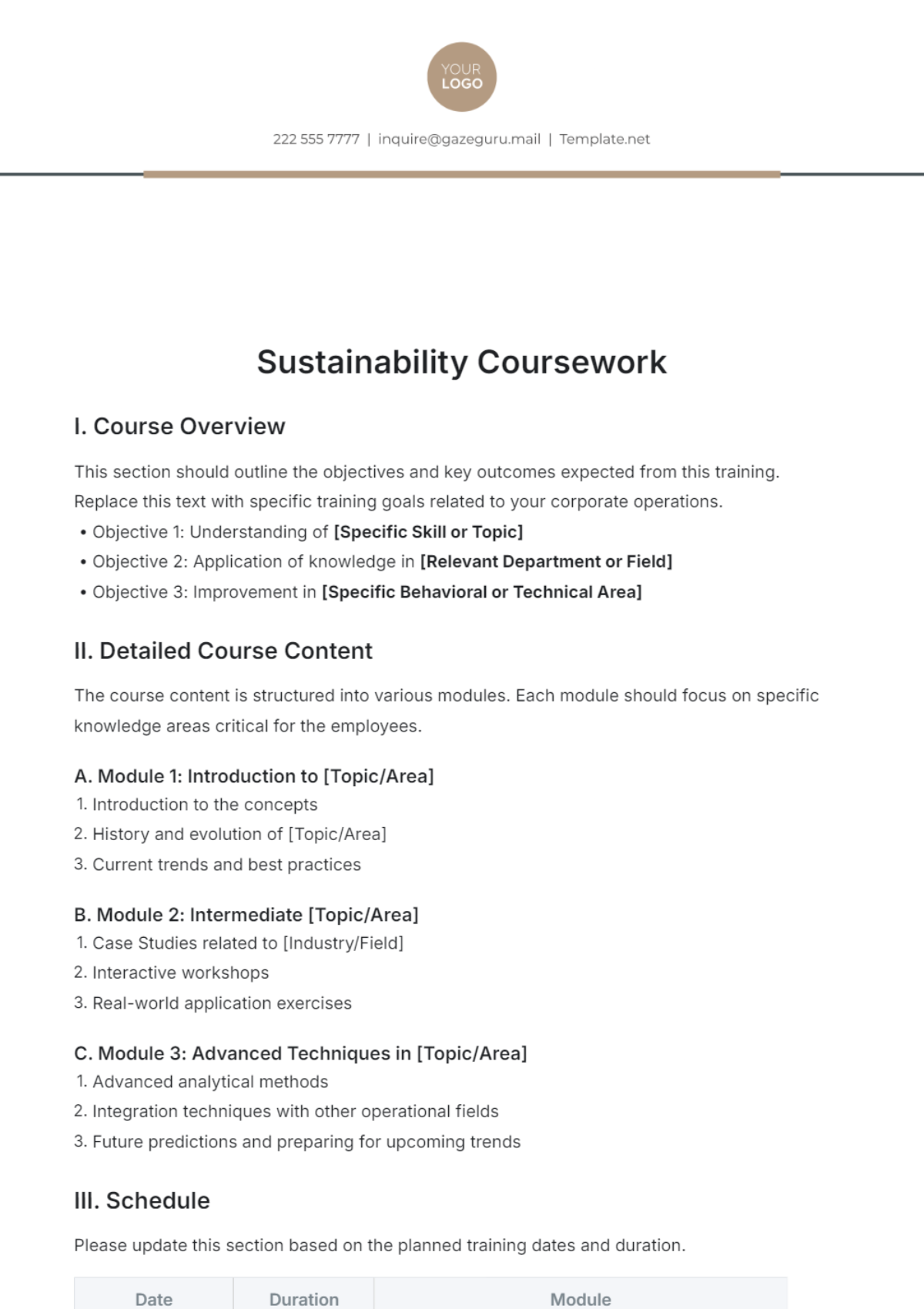Field Work Coursework
Institution: [YOUR COMPANY NAME]
Address: [YOUR COMPANY ADDRESS]
Prepared by: [YOUR NAME]
I. Introduction
This coursework is designed to provide you with hands-on experience and practical skills in Environmental Science. Throughout this coursework, you will have the opportunity to apply theoretical concepts in real-world settings, enhancing your understanding and proficiency in environmental research and conservation.
II. Course Objectives
Understand the importance of field work in environmental science.
Develop practical skills related to data collection and analysis.
Apply theoretical knowledge to real-life environmental challenges.
Enhance problem-solving and critical thinking abilities in the context of environmental issues.
III. Course Schedule
Week | Date | Topics Covered |
|---|---|---|
1: Introduction to Field Work | 1/6/2050 |
|
2: Field Work Techniques | 1/13/2050 |
|
3: Data Analysis and Interpretation | 1/20/2050 |
|
4: Field Work Presentation | 1/27/2050 |
|
IV. Field Work Project
Project Title: Impact of Urbanization on Biodiversity in [SPECIFY LOCATION]
Objective: To assess the impact of urbanization on local biodiversity and propose conservation strategies.
Methodology:
Conducting biodiversity surveys in urban and adjacent natural areas.
Analyzing data to determine species richness and abundance.
Comparing biodiversity metrics between urban and natural areas.
Expected Outcomes:
Identification of key factors contributing to biodiversity loss in urban areas.
Recommendations for urban planning and conservation efforts.
V. Assessment
Assignments:
Weekly field reports (25% of grade).
Data analysis project (35% of grade).
Field Work Report:
Comprehensive report detailing methods, results, and conclusions (10% of grade).
Presentation:
Final presentation summarizing field work findings (10% of grade).
Final Assessment:
Written exam covering course material (20% of grade).
VI. Resources
Required Reading:
"Field Techniques for Environmental Science" by [AUTHOR'S NAME].
"Introduction to GIS" by [AUTHOR'S NAME].
Field Work Equipment:
GPS devices.
Field notebooks.
Binoculars.
Additional Resources:
Access to online databases (e.g., Web of Science, JSTOR).
Guest lectures by experts in environmental science.
